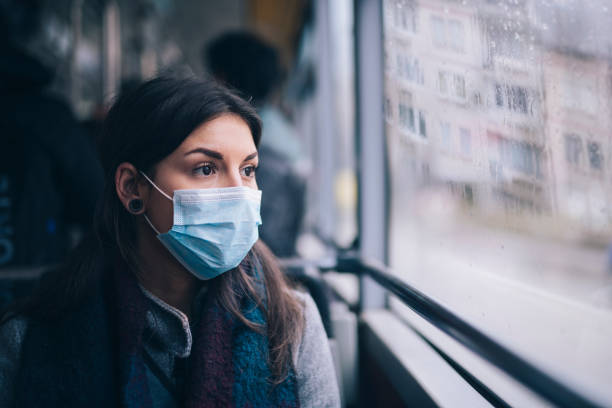Air pollution is a growing global concern, affecting people and the environment in numerous ways. With increasing urbanization and industrialization, air quality has declined in many parts of the world, leading to serious health problems. In this article, we’ll explore the effects of air pollution on human health and what can be done to reduce its impact.
Introduction
Air pollution is a complex mixture of gases, particles, and biological substances that can harm human health and the environment. The sources of air pollution are varied and include burning fossil fuels, industrial processes, and emissions from transportation. The effects of air pollution on human health are many and can range from minor irritation of the eyes and respiratory system to serious chronic health conditions.
The Short-Term Effects of Air Pollution on Human Health
Air pollution can cause a range of short-term health problems, including:
- Respiratory problems: Air pollution can irritate the respiratory system, causing coughing, wheezing, and shortness of breath. It can also trigger asthma attacks and make existing respiratory conditions worse.
- Eye irritation: Air pollution can cause eye irritation, redness, and watering.
- Headaches: Air pollution can cause headaches, especially in people who are sensitive to changes in air quality.
- Cardiovascular problems: Air pollution can increase the risk of cardiovascular problems, such as heart attack and stroke.
The Long-Term Effects of Air Pollution on Human Health
In addition to short-term health problems, air pollution can also cause serious long-term health effects, including:
- Chronic respiratory problems: Long-term exposure to air pollution can increase the risk of developing chronic respiratory problems, such as chronic obstructive pulmonary disease (COPD) and lung cancer.
- Heart disease: Long-term exposure to air pollution can increase the risk of heart disease, especially in people who are already at risk.
- Cognitive decline: Air pollution has been linked to cognitive decline, especially in older adults and children.
- Birth defects: Pregnant women who are exposed to high levels of air pollution are at increased risk of having babies with birth defects.
Who is Most at Risk from Air Pollution?
While everyone is at risk from air pollution, some groups are more vulnerable than others, including:
- Children: Children are especially vulnerable to the effects of air pollution, as their bodies and brains are still developing. They are also more likely to spend more time outdoors, increasing their exposure to air pollution.
- Older adults: Older adults are more vulnerable to the effects of air pollution due to age-related changes in the body, such as a decline in lung function.
- People with existing health conditions: People with existing health conditions, such as asthma, heart disease, and COPD, are more vulnerable to the effects of air pollution.
How to Reduce Your Exposure to Air Pollution
There are several steps you can take to reduce your exposure to air pollution and protect your health, including:
- Avoid outdoor activities during times of high air pollution: Check local air quality reports and avoid outdoor activities when air pollution is high.
- Keep windows and doors closed: During times of high air pollution, keep windows and doors closed to reduce the amount of outdoor air pollution entering your home.
- Use air filters: Use air filters in your home and office to reduce indoor air pollution.
- Reduce your use of fossil fuels: Reduce your use of fossil fuels by using public transportation, biking, or walking instead of driving.
Government Action to Reduce Air Pollution
Governments around the world are taking steps to reduce air pollution and protect public health. Some measures that governments have taken include:
Regulating emissions from industrial processes and transportation: Governments are implementing regulations to limit emissions from industries and transportation, such as the European Union’s Air Quality Directive.
Encouraging the use of clean energy: Governments are promoting the use of clean energy sources, such as wind and solar power, to reduce emissions from the burning of fossil fuels.
Investing in research and development: Governments are investing in research and development to find new ways to reduce air pollution and improve air quality.
Implementing air quality monitoring programs: Governments are implementing air quality monitoring programs to track air pollution levels and inform the public about potential health risks.
Conclusion
Air pollution is a serious global health concern, with both short-term and long-term effects on human health. It is important for individuals to take steps to reduce their exposure to air pollution and for governments to take action to reduce air pollution levels. By working together, we can create a cleaner, healthier environment for future generations.











